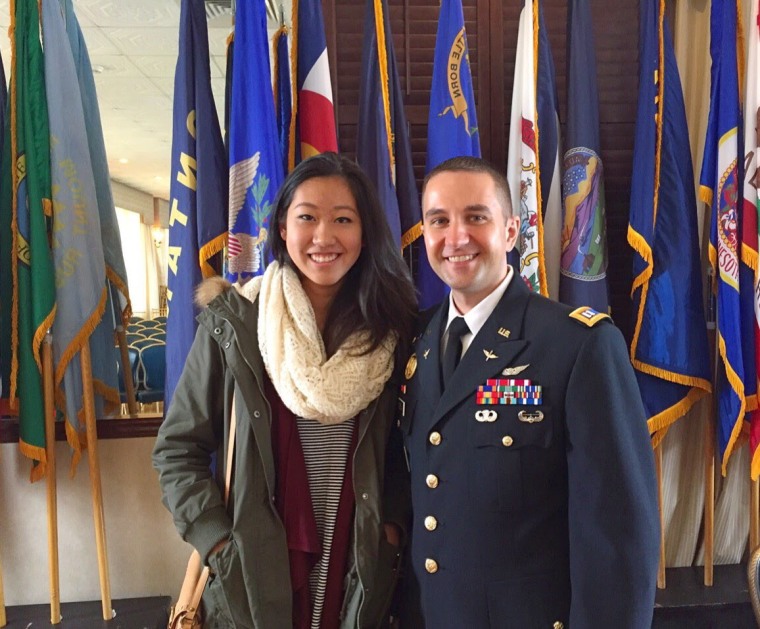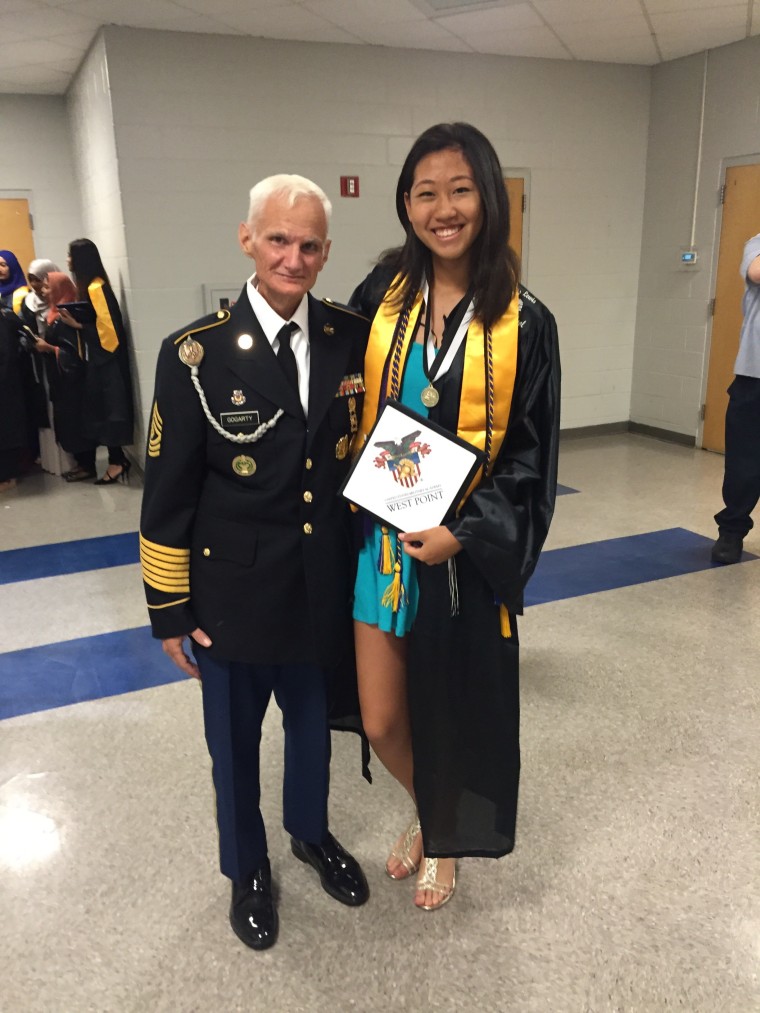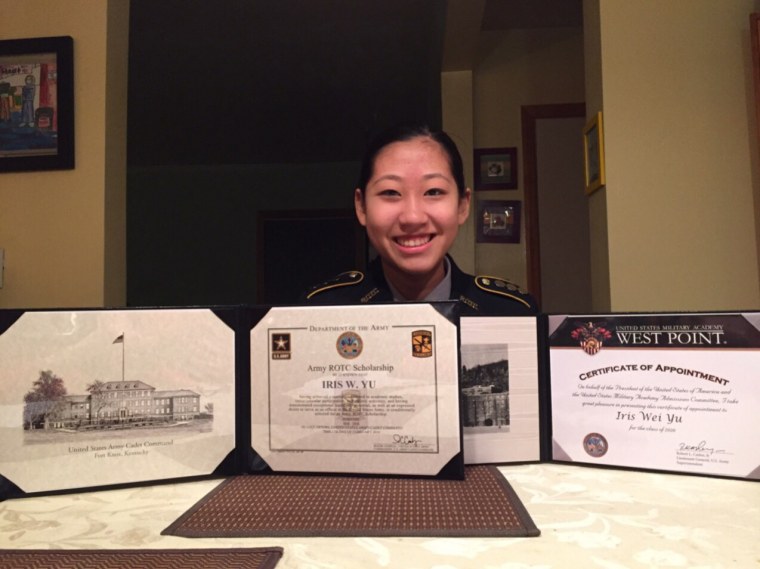Iris Yu was seven years old when she told her parents she wanted to join the Army. The family was visiting the prestigious U.S. Military Academy at West Point in upstate New York when Yu saw the army uniform and thought it was cool.
“They were like, “Yeah, yeah, go for it,’” Yu told NBC News.

Ten years later, that’s exactly what Yu did. The 17-year-old, born and raised in Queens, New York, applied to West Point and was accepted in March. U.S. Rep. Grace Meng (D-NY) was one of the members of Congress who gave Yu the required nomination for admission.
“Giving back to your country is something that not everyone can do,” Yu said. “I think it’s really important for people to understand that people from all over the country, they’re willing to give up their lives so we can enjoy the freedom that we get every day.”
RELATED: Meet New York's Only Female, Asian-American Firefighter
Yu, a recent graduate of Francis Lewis High School, said she originally contemplated attending college on an Army ROTC scholarship, which requires graduates to serve four years as an officer. But her Junior ROTC instructor convinced her to instead consider West Point, founded in 1802.
After a visit, Yu said she was energized by what she saw — the hands-on learning, the small class sizes, the rigorous academics. When she broke the news about applying to her parents, who are immigrants from Taiwan, her father was supportive since he’d always been fond of the military academy, Yu said.
Her mom, however, had some reservations.
“She was a little worried for me,” Yu said.
“The culture of being a doctor or being a lawyer is the main goal of a lot of Asian family households, but you can do whatever you put your mind to.”
But her mother’s stance changed, Yu said, after the two attended a few events together at West Point. That, Yu said, helped her mom better understand her passion to serve in the armed forces.
Yu said Asian Americans, especially women, face challenges proving themselves at West Point and in the U.S. military. Eight percent of the academy's class of 2018 are Asian American and only 22 percent are female, according to data released by the academy.
In the U.S. military, Asians accounted for just 3.8 percent of enlisted men and women and 4.4 percent of officers, according to a 2013 demographics report prepared for the Department of Defense.
“The culture of being a doctor or being a lawyer is the main goal of a lot of Asian family households,” Yu said. “But you can do whatever you put your mind to.”
Because the four-year undergraduate program at West Point is fully funded, cadets are required to serve at least five years of active duty and three years in a reserve component after graduation. All of them graduate as officers.
Yu said she’s thinking of spending her five years in the engineers unit and later, if she continues her service, the civil and military affairs branch. She said she’s particularly interested in public health or epidemiology, the study of how disease spreads and can be controlled.

For now, though, Yu’s mind is focused on the six-and-a-half weeks of basic training that begins Monday, June 27.
“I’m really actually very nervous about it,” Yu said. “But I know if I go in with a positive outlook, anything is possible.”
Her JROTC training in high school — a regimen that included running and lifting weights — will likely prove helpful, she said. As part of the JROTC National Raiders, Yu participated in competitions during which she had to run with 35-pound rucksacks and carry a 90-pound stretcher, an event called cross-country rescue, she said.
Yu said she hopes more Asian Americans challenge stereotypes about the academic and career paths they choose, and that they pursue their true passions.
“The only limitation we have is ourselves,” she said.
Follow NBC Asian America on Facebook, Twitter, Instagram, and Tumblr.
